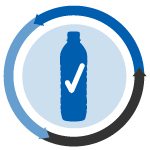 A European Union panel approved a pair of proposals that bring recovered material into plastic food and beverage packaging.
A European Union panel approved a pair of proposals that bring recovered material into plastic food and beverage packaging.

 A European Union panel approved a pair of proposals that bring recovered material into plastic food and beverage packaging.
A European Union panel approved a pair of proposals that bring recovered material into plastic food and beverage packaging.
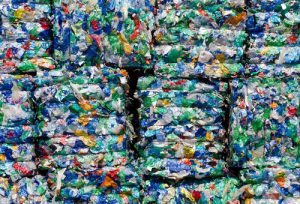 Researchers have launched a project to measure the depth of demand for post-consumer recycled plastics in the U.S. and Canada. Continue Reading
Researchers have launched a project to measure the depth of demand for post-consumer recycled plastics in the U.S. and Canada. Continue Reading
 A facility near London is using a new baffled oscillation technology to separate PP and PE in a water tank, and a study says more rPET could be used in hot-fill containers.
A facility near London is using a new baffled oscillation technology to separate PP and PE in a water tank, and a study says more rPET could be used in hot-fill containers.
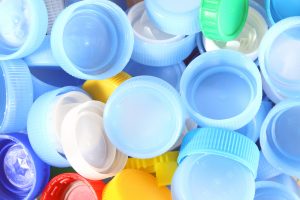 Virgin and recycled PP prices will likely remain above historical averages until additional prime PP capacity comes on-line in the next couple of years, a markets forecasting expert said.
Virgin and recycled PP prices will likely remain above historical averages until additional prime PP capacity comes on-line in the next couple of years, a markets forecasting expert said.
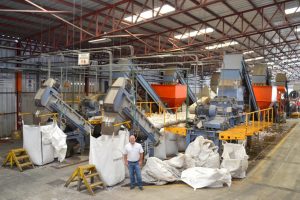 When recycling processor Invema switched from a high-speed friction washer to an updated system relying on boilers and chemicals, something unexpected happened: Energy usage decreased by 20 percent.
When recycling processor Invema switched from a high-speed friction washer to an updated system relying on boilers and chemicals, something unexpected happened: Energy usage decreased by 20 percent.
 International appliance maker Electrolux reports it used 7,400 metric tons of recycled plastic last year, nearly double what it used two years earlier.
International appliance maker Electrolux reports it used 7,400 metric tons of recycled plastic last year, nearly double what it used two years earlier.
Dow Chemical Co. says its new compatibilizer allows reclaimers to get improved properties from PE-PP mixes, making it possible to move the material into higher-value applications.
Keurig Green Mountain, which helped popularize single-serve coffee and tea pods, is attempting to beef up its recycling efforts.
 Cornell University researchers push ahead a technology that could lift PE and PP recycling, and a handful of companies targeting hard-to-recycle plastics grab attention.
Cornell University researchers push ahead a technology that could lift PE and PP recycling, and a handful of companies targeting hard-to-recycle plastics grab attention.
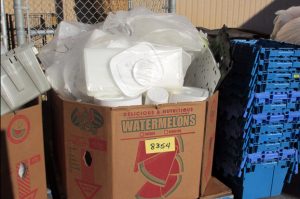 An increasing number of grocery chains are recycling rigid plastic containers through back-of-store programs, providing a clean source of HDPE and PP for reclaimers.
An increasing number of grocery chains are recycling rigid plastic containers through back-of-store programs, providing a clean source of HDPE and PP for reclaimers.
